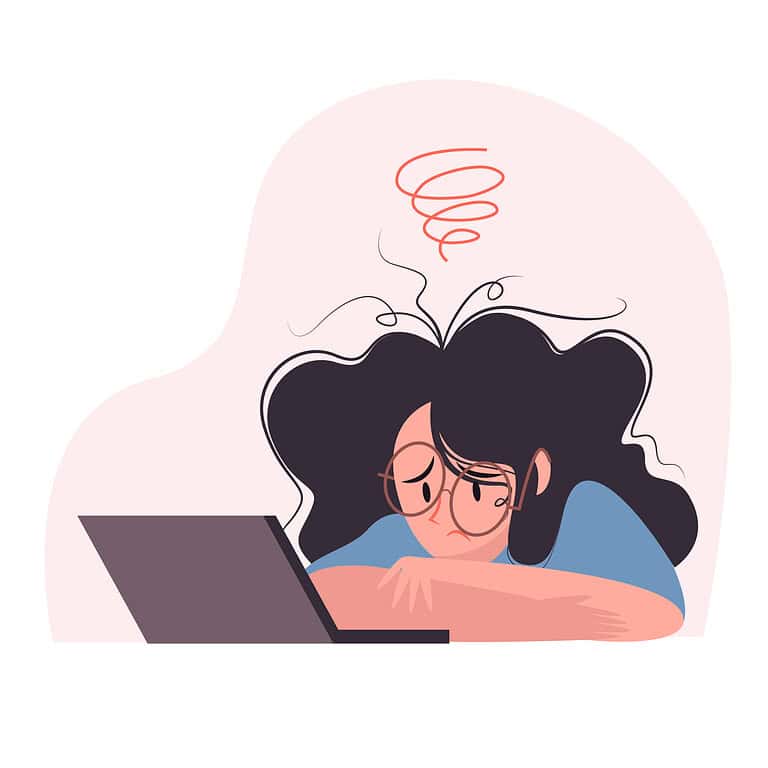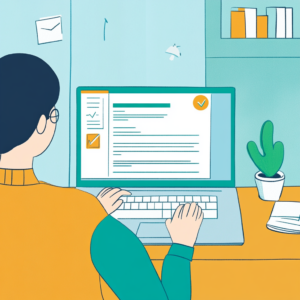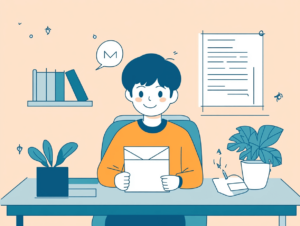We all experience feeling sluggish when colder months come – all we want to do is snuggle up and sleep. Not only that, but we found it even more difficult to give 100% in our jobs.
Recognizing this behavior, in October 2025, experts at Resume.ai ran a survey of over 1,000 full-time office workers in the U.S. and studied how reduced daylight in the winter months and workloads affect professionals.
A study reveals that anxiety during winter months is linked to seasonal changes, such as less sunlight, shorter days, and longer nights. Data shows that this seasonal shift is not only affecting workers’ productivity and motivation negatively but also causing higher levels of anxiety and negative emotions.
Key findings
- 42.2% of workers stated that they feel anxiety in the winter months at work
- Older generations like Gen X (43.7%) and Millennials (43.2%) are more likely to be affected by the seasonal shift
- Gen Z (11.5%) does not experience extreme emotions excessively, tying it with the high-performance drive they have in their early careers
- Full-time office workers are the most anxious, knowing they spend at least 8 hours under artificial lighting and extra time commuting to work
Many employees confirmed that they enter a state of career hibernation when working suddenly feels more like a necessity than an opportunity for growth. This phenomenon is commonly seen in larger companies where the workers’ focus shifts from ‘smashing the KPIs’ to ‘surviving till the end of the year.’
15.5% workers experience extreme anxiety at work during winter
In the broader picture, it can be connected with a psychological disorder known as SAD (Seasonal Affective Disorder), which affects about 5% of U.S. adults precisely. However, according to the survey, anxiety is far more common, followed by motivation loss, burnout, and work-related stress.
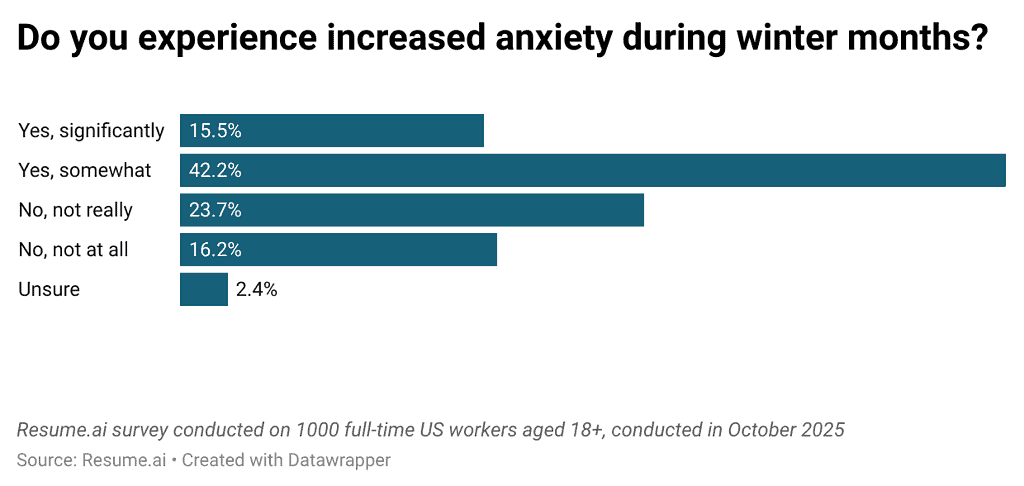
When asked how often they experience unpleasant feelings related to their job, 15.5% of respondents report feeling significantly more anxious during this period, while 42.2% notice a subtle increase in anxiety. Meanwhile, nearly a quarter of workers (23.7%) say working during winter doesn’t really affect their stress levels, and 16.2% feel no impact at all, with a small portion (2.4%) of them being unsure.
Overall, this means that more than half of workers experience at least some rise in anxiety as the days get shorter and workplace pressures increase.
Here’s why winter work anxiety hits Millennials and Gen X the hardest
According to the data, it’s clear why work stress affects generations in very different ways when seasons shift.
Gen X (43.7%) and Millennials (43.2%) are the most likely to struggle, according to the surveyed participants. Their stress often comes from trying to handle career demands, deadlines, and personal responsibilities, which can make the darker days season feel even more draining.
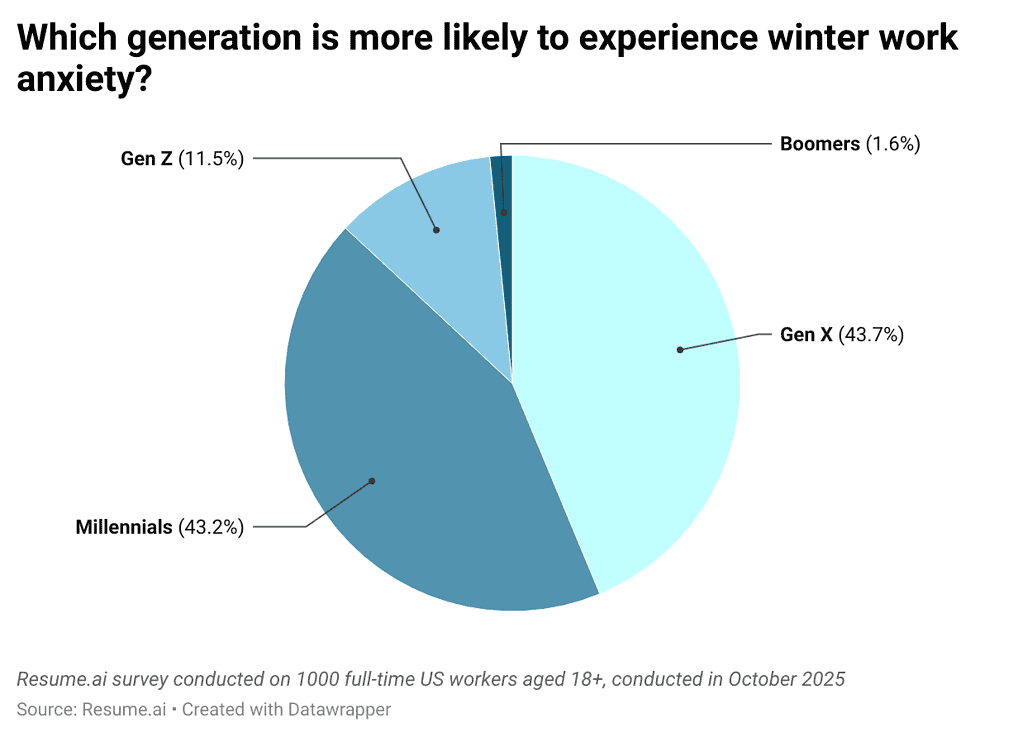
In contrast, Gen Z (11.5%) and Boomers II (1.6%) report far lower levels of winter-related work stress. Younger workers may still be driven by the excitement of building their careers, while older professionals often rely on established routines and experience to maintain focus.
60% in-office workers report that their job negatively impacts their mental health
We surveyed employees based on their work setup to explore how in-office and remote workers experience mental health during the winter months. The results show that both weather and work environment influence well-being.
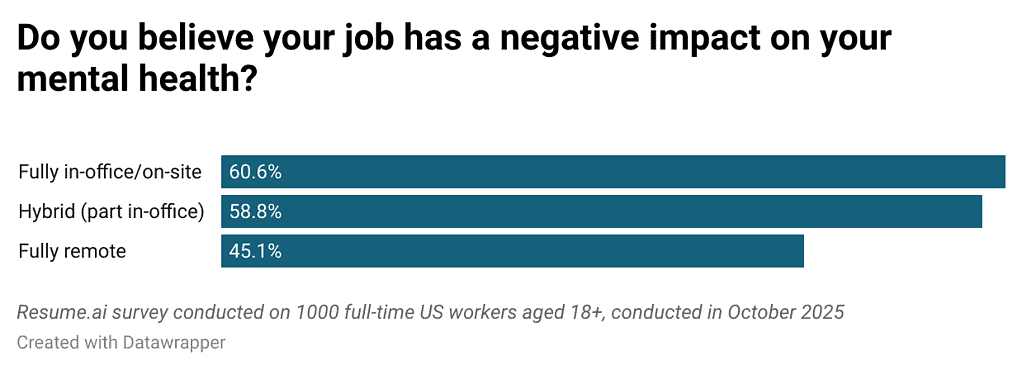
Over 60% of fully in-office employees said their job does negatively affect their mental state, slightly more than 58.8% of hybrid workers. Fully remote employees reported the lowest impact at 45%, confirming that greater autonomy, freedom, and no time spent on commuting in bad weather protect mental health.
Overall, it is clear that, no matter the season or working location, a significant number of people experience negative impact on their mental health while working.
The connection between winter burnout and biology is proven scientifically
This means that the roots of winter burnout may run deeper than a simple lack of motivation. When sunlight decreases, the body produces less vitamin D, which plays a key role in energy levels, mood regulation, and cognitive function. According to Sanford Health, this biological shift can quietly intensify emotional fatigue, making everyday tasks feel heavier and more draining than usual.
Over time, what begins as seasonal fatigue can evolve into a cycle of burnout, where employees feel detached from their work and struggle to find purpose in their routines. The combination of mental and physical fatigue turns winter into a critical season for both personal well-being and workplace productivity.
Methodology
In October 2025, we surveyed 1,000 full-time office workers in the United States who were at least eighteen years old. Respondents represented diverse demographics across age, gender, location, and career stage.

